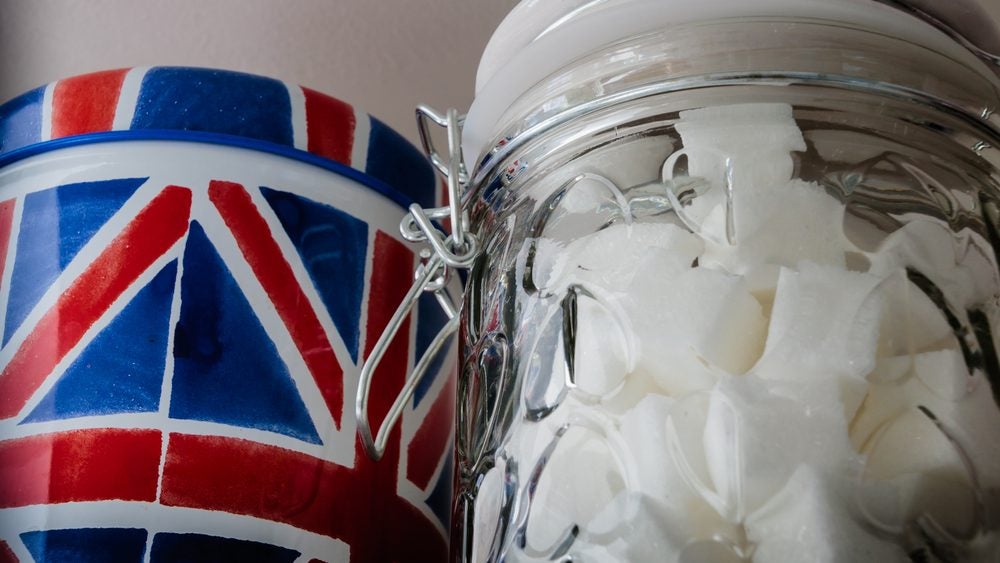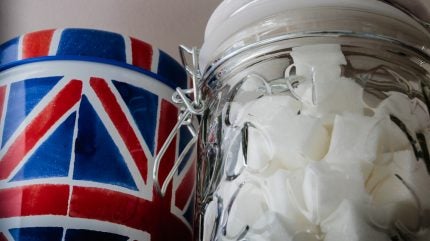

A study analysing the results of the UK sugar tax on soft drinks suggests the new Labour government might want to expand the scope of the levy.
While research from the Journal of Epidemiology and Community Health (JECH) published in the British Medical Journal found the tax reduced sugar intake for soft drinks, it also fostered a reduction across the whole diet.
Implemented in April 2018, the so-called soft drinks industry levy (SDIL) was introduced to encourage manufacturers to cut the sugar content in an effort to lower instances of type-2 diabetes, heart disease and tooth decay, and to reduce obesity rates, particularly in children.
Analysing the effects of the tax on sugary drinks 11 months after implementation, the study in question found the intake of free or added sugars dropped by three grams for adults and 5.2g for children.
However, the JECH report noted: “The UK SDIL was associated with significant reductions in consumption of free sugars from soft drinks and across the whole diet and reinforces previous research indicating a reduction in purchasing.
“This evidence should be used to inform policy when extending or considering other sugar-reduction strategies.”
Access the most comprehensive Company Profiles
on the market, powered by GlobalData. Save hours of research. Gain competitive edge.

Company Profile – free
sample
Your download email will arrive shortly
We are confident about the
unique
quality of our Company Profiles. However, we want you to make the most
beneficial
decision for your business, so we offer a free sample that you can download by
submitting the below form
By GlobalData
Drawn from the UK National Diet and Nutrition Survey, and based on sample evidence for children below the age of 19 and adults 18-years-plus, the research found sugar consumption across the whole diet fell by 4.8g and 10.9g, respectively.
Dr Nina Rogers, the lead author of the study and part of the University of Cambridge School of Clinical Medicine, was quoted by The Guardian as saying: “The findings of our study are encouraging and show that the UK soft drinks industry levy is linked to a significant reduction in daily sugar intake in adults and children.”
She added: “The new UK government might want to consider extending the tax to other (currently exempt) drinks which have a high sugar content, or even to some foods. They might also want to look at restructuring the tax to apply a per gram of sugar/100mls rather than [a] threshold-based levy.”
In May last year, UK Prime Minister Sir Keir Starmer – then leader of the opposition Labour Party – said he was against imposing a tax on salty and sugary foods during the cost-of-living crisis if the party came to power.
Approached by Just Food for comment on the JECH study, the UK Department of Health and Social Care said via spokesperson that other measures were planned to tackle obesity, but without making any commitment to extend the soft drinks tax.
“This government will take action to prevent ill-health and tackle the obesity crisis head on, easing the strain on the NHS and helping people to live well for longer,” the spokesperson said.
“We will introduce tight restrictions on advertising junk food, alongside banning children from being able to purchase sugary, high caffeine energy drinks.”
Sugar intake remains above levels recommended by the World Health Organization (WHO).
The WHO recommends no more than 50g of sugar per day. For children aged four to six years, it falls to 35g and is higher at 42g for those in the seven- to ten-year bracket.
JECH suggested the consumption of added sugars in the UK, is still “well above the recommended daily maximum, although levels have fallen over the last decade”.
It said the intake among adolescents is around 70g a day, while “sugar sweetened beverages constitute a major source of free sugar in the UK diet and are the largest single source for children aged 11–18 years, where they make up approximately one-third of their daily sugar intake”.
In a statement provided to Just Food by the UK advocacy group Action on Sugar, Dr Kawther Hashem said: “This new analysis drives home the importance of policies designed to improve the nutritional quality of food and drink.
“In particular, the soft drinks industry levy (SDIL) in the UK has proven to be an effective lever to encourage food and drink manufacturers to reduce sugar.”
The Lecturer in Public Health Nutrition at Queen Mary University of London added: “With a new government now in place, policymakers are urged to consider applying a similar levy to other discretionary products that are key contributors to sugar intake, such as chocolate confectionary, to shift diets towards a healthier direction.”
Meanwhile, Katharine Jenner, a director at the UK-based Obesity Health Alliance coalition, said: “The world we live in doesn’t make it easy to be healthy and there is no silver bullet to fixing our broken food system.
“Instead, it takes a range of measures such as extending the soft drinks industry levy to other high-sugar foods and restricting advertising and promotion of unhealthy foods, all working at once to encourage the food industry to adapt their recipes.
“This new research should give hope to the new government that, with the right levers, it is possible to improve the nation’s health.”

